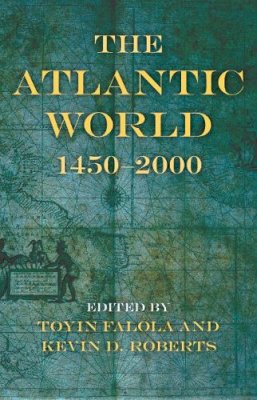
The Atlantic World: 1450–2000
Toyin Falola (Ed.)
This ambitious work provides an overview of the Atlantic world, since the 15th century, by exploring the major themes that define the study of this region. Contact with Europeans in Africa and the Americas, the slave trade, gender and race in the early Atlantic world, independence movements in Africa, Caribbean nationalism, and gender and identity in the 20th century are just a few subjects discussed. Moving beyond the micro-histories of the scholarly monograph to connect the fruits of those researches with broader events and processes, this book, in the editors' words, makes "a concerted effort to re-connect elites and non-elites, Old World and New, early modern and modern, and economics and culture." It will be a point of embarkation for a new generation of students of the Atlantic world.
Product Details
About Toyin Falola (Ed.)
Reviews for The Atlantic World: 1450–2000
Journal Imperial and Commonwealth History
Falola and Roberts have edited a collection of essays worthy of their goal: to 'represent both the roots of the Atlantic World paradigm and the seemingly limitless potential that the field has in the future.'
European History Quarterly
[This] collection addresses all three historiographical views of how the Atlantic world ended, a feature that, more than anything else, makes it a successful volume. Vol. 84, No. 3 & 4, 2010
New West Indian Guide
The editors of this volume are to be commended for organizing such an intelligent and well-integrated history of the Atlantic World. January, 2011
H-Soz-u-Kult
Each of the four sections contains several finely written and well-formulated essays that will inspire scolars to venture beyond the common tendency to hyper-specialize and to utilize a macro perspective when considering the Atlantic World. Vol. 21, no. 2
International Journal of Maritime History
This collection of essays draws together the latest and most recent contentious scholarship on the Atlantic world. . . . Recommended. June 2009
Choice
Falola and Roberts have opened an avenue for the study of the Atlantic World that insists on complicating historical questions and methods. These complications require a re-assessment of interdisciplinary modes of doing and writing history.Vol. 42.1 2009
Solimar Otero
Louisiana State University
